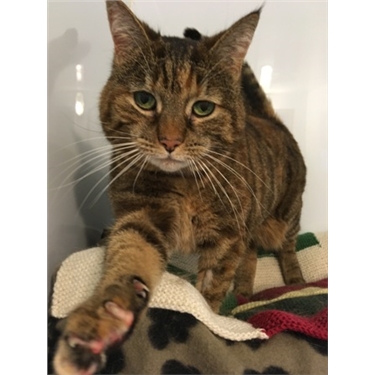Neutering
01 February 2024

What is neutering?
Neutering is a surgical procedure which prevents female cats (known as queens) becoming pregnant, and male cats (known as toms) making females pregnant.
A female cat is spayed (her ovaries and uterus are removed)
A male cat is castrated (his testes are removed)
Generally it is recommended to neuter healthy domestic cats from four months of age (16 weeks). Always seek advice from your vet for each individual cat.
The Operation
Your cat will have an anaesthetic on the day, so he or she should not be given any food prior to the operation (usually 12 hours before) - your vet will advise you about this.
The operation for both male and female cats is very simple and you will usually be able to drop your cat off and pick him or her up on the same day.
Female cats will have a small shaved area on their left side; her fur will grow back in a few weeks. A female cat will also have stitches. Most often these are dissolvable, but if not, they will be taken out by the vet around 10 days after the opertaion.
Cats recover very quickly from neutering operations but we recommend following your vet's advice on how to look after your cat after its operation.
The benefits of neutering
Neutered male cats:
Will become less likely to roam
Will become less likely to fight, thus improving their chances of avoiding serious diseases, like feline immunodeficiency virus (FIV) and feline leukaemia virus (FeLV) which are transmitted by cat bites and during reproductive activity thus infecting Queens and unborn kittens
Will also be less likely to mark their territory with urine (spraying)
Spayed female cats:
Can avoid unwanted pregnancies (It is Not beneficial for a female cat to have a litter before spaying; this is a myth)
Won't call and wail during their season
Will be less likely to contract diseases spread by bites and during reproductive activity which can infect the Queen and her unborn kittens
Did you know?
A female cat can produce a litter of up to 7 kittens.
Kittens can reach sexual maturity as early as 4-5 months old.
A female cat can fall pregnant again even if she is still feeding her first litter.
Kittens born as a result of inter-breeding can be born with serious birth defects.
Queens impregnated by a tom cat that is FIV or FeLV positive may pass this on to their unborn kittens
Cats recover very quickly from neutering operations - follow your vet's advice on how to look after your cat after its operation.
Vaccination
Cats Protection recommends first vaccination of kittens from 8-10 weeks, second vaccination 11-13 weeks so they have full cover starting-out in their young lives. Vets will neuter healthy kittens from 16 weeks and their recovery period is much quicker. Microchipping is best done at the same time as neutering.
How much does it cost?
The cost of the operation varies according to what part of the country you live in and the vet you use. The average neutering cost for a male cat in our area is between £70 and £110 and the average cost for a female cat is between £90 and £170. Your vet will be happy to give you a quote before the operation takes place.
Cats Protection offers financial assistance to cat owners on benefits or low incomes to help with the cost of neutering. Our Snip n Chip (neuter/microchip) campaigns run throughout the year.
Financial Assistance
Cats Protection may be able to help with the cost of neutering your domestic cat, so please give us a call to discuss this.
Feral Neutering
An uncontrolled feral colony will grow very quickly. The cats will be susceptible to disease (see above - FIV, FeLV, Cat Flu) and may also become a nuisance. Simply removing feral cats is not a long-term solution as this creates a vacuum and a new colony will soon move-in taking their place.
The best option therefore, is to neuter all of the resident feral cats within as short a time frame as possible. Over a period of years this will reduce the size of the colony. A controlled, healthy and managed colony will deter other ferals from moving-in and will keep vermin levels down.
* No Volunteers Currently Available for Trap, Neuter, Return. *
Other north east charity carrying-out Feral T.N.R - Cat Action Trust 01224 929392